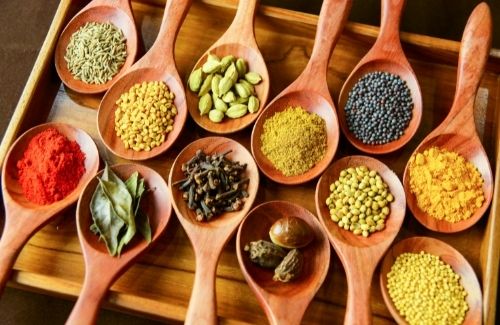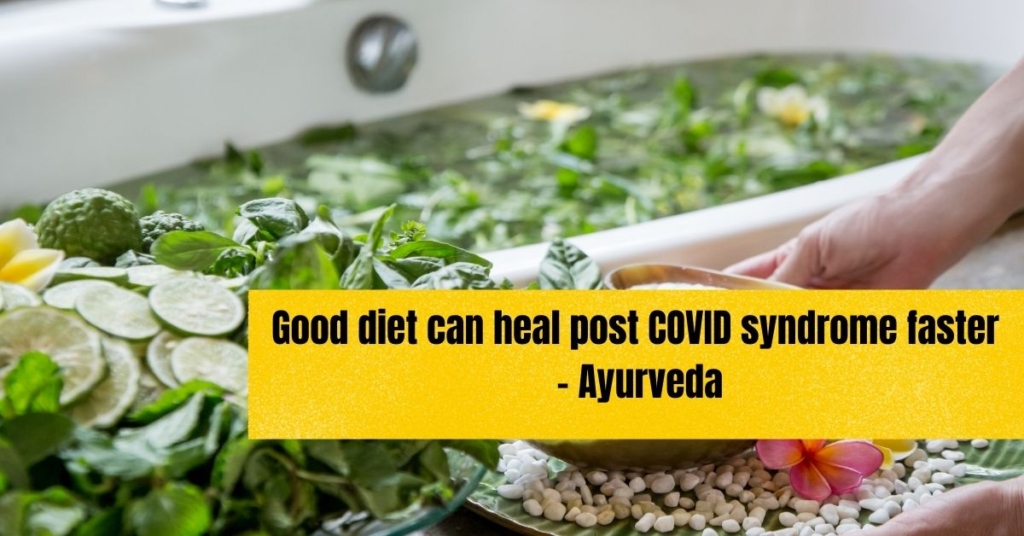Good diet can heal you faster! Unbelievable? Then read on to trust the words.
Viruses cause the common cold and seasonal flu. Covid symptoms can make you feel bad for a few days, while post-Covid symptoms can make you feel quite ill for a few days to weeks. It causes symptoms that last for weeks or months after the infection has gone for some people. The virus can damage the lungs, heart, and brain, which increases the risk of long-term health problems. This is called Post-Covid Syndrome or Long Covid. However, rcovery is definitely possible and at fast pace if one follows a trict regime.
Common Covid symptoms include fever or chills, a dry cough, shortness of breath, feeling very tired, muscle or body aches, headache, a loss of taste or smell, sore throat, congestion or runny nose, nausea or vomiting, and diarrhea. These symptoms can start anywhere from 2 to 14 days after contact with the virus.
Common post-Covid symptoms include shortness of breath or difficulty breathing, dizziness, muscle pain or headache, fatigue, cough, joint pain, high BP (hypertension), loss of smell or taste, concentration or sleep problems, anxiety, and depression.
Self Care is essential:
Health care is self-care. Self-care prioritizes a healthy lifestyle that helps prevent illnesses and ensures that your health is in your hands. Self-care starts with Ayurveda lifestyle practices- Dinacharya (daily regimens) that help improve your health and prevent illnesses. When you practice Dinacharya, you learn to become self-reliant, better cope with stress, and do what’s important to you. The number of searches for ‘self-care’ has more than doubled in Google since 2015. Self-care teaches you a lot about yourself and provides you with insight to be the best version of yourself. When you take the time to meet your own needs, you’ll also be better able to take care of others.
Ayurveda lifestyle practices, everyday self-care habits. The 3 pillars of health- are food, sleep, and exercise.
Also Read: Ayurveda Home Remedy for Flu, Cold & Cough
Food, Sleep, and Exercise are the 3 pillars of health in Ayurveda that support the body constantly, just like a house is supported by the pillars. Eating a balanced diet, exercising, and getting enough sleep at night are key ingredients for immunity. If you do not eat nutritious foods, your metabolism can slow down and weaken your immune system. Insufficient sleep can upset the hormone balance in your body, leading to increased appetite, insomnia, anxiety, obesity, and depression. If you aren’t getting regular exercise or have an inactive lifestyle, the risk of sickness and many chronic diseases increases.
Good Diet (Food):
You are what you eat. The simplest solution to stay healthy is by eating more home-cooked meals. Research finds that when people eat home-cooked meals regularly, they tend to be healthier and happier. It is described in Charak Samhita that all living things depend upon food (ahara). Food is the foremost pillar among the three pillars of health and the most important factor for the sustenance of life. Our health and happiness depend on food. Foods have an almost immediate effect on the body.
Fix a time for your meals:
Eat three nourishing meals a day, and eat them at around the same times each day. The morning meal should be the

heaviest meal of the day, and to be taken at around 8-10 am. Eat a lighter meal at about 5-6 pm, such as khichari, moong bean soup, or vegetable soup, for dinner. You should finish the last meal of the day at least three hours before you go to bed. Don’t skip meals, especially morning meals.
Health is not what you eat but how you digest it.
According to Ayurveda, the digestion of food is more important than eating it. Eating the proper quantity and high-quality food is also important for longevity. Modern scientists also agree with the common saying ‘Eat less and live longer’ and is widely accepted now. Eating according to the strength of the Jatharagni (digestive fire) is necessary to stop the formation of ama. This toxic material arises from undigested food. According to Ayurveda, ama is the root cause of most diseases.
The Six Tastes of Ayurveda:
A balanced diet in health or sickness is an integral part of preventive healthcare and medical treatment in Ayurveda. A living body comprises the five fundamental elements (mahabhutas): space, air, fire, water, and earth. The same elements also compose the food. The basic reason for taking food is to augment and replenish the five fundamental elements in the body. Eating a balanced diet (nutritious food) is vital to health. It should be balanced by including all the six tastes of Ayurveda: madhura (sweet), amla (sour), lavana (salty), tikta (bitter), katu (pungent), and kashaya (astringent).
The six tastes are made from the same five elements of the doshas. When your Doshas are out of balance, these six tastes can help repair imbalance. Therefore incorporate all six tastes (rasas) of Ayurveda in your everyday diet to maintain health, balance doshas, prevent illnesses and feel satisfied after eating.
Balanced Diet:
A balanced diet provides you with energy and nutrients. There are two kinds of nutrients: macronutrients- protein, carb, fats, and fiber; micronutrients- calcium, magnesium, zinc, vitamins and minerals and special compounds- water, probiotics to stay strong, healthy help prevent lifestyle diseases such as cancer, diabetes, etc. Try to eat warm food- boiled rice or locally grown natural grains for carbohydrates, monggo beans or moong daal (lentils), egg white and fish for protein, seasonal vegetables and fruits for vitamins and minerals, and oranges and lemon to get vitamin C.

Spices –
Add spices like turmeric, cumin, coriander, black pepper, garlic, and ghee (clarified butter) in cooking your meals for digestive health. Stay well hydrated by drinking water, coconut water, fruit juice, warm herbal tea, warm soups, and warm milk. Avoid cold foods and drinks, sour foods, fast foods, processed foods, fried foods, red meat, alcohol, white sugar, too much salt, protein supplements, smoking, drinking, and aircon.
“When diet is wrong, medicine is of no use. When diet is correct, medicine is of no need.” ~ Sage Charaka, Charaka Samhitha BC 200.
Read next week for the second part – Sleep!


